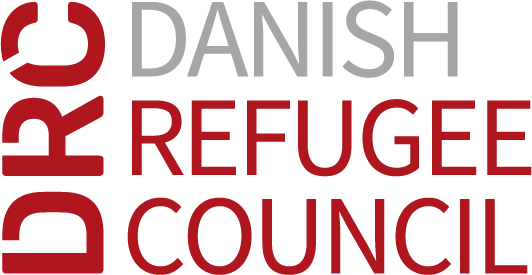11
February
2026
Course: Essentials of Planning, Monitoring, Accountability and Learning for Humanitarian Practitioners
The Academy for Humanitarian Action (aha) calls for applications for course on Planning, Monitoring, Accountability & Learning in Humanitarian Action. A designed training targeting humanitarian practitioners and development professionals who want to strengthen their practical skills in this specialization.
The course will take place online from 9:30 a.m. to 1:30 p.m. CET on:
February 11, 2026
February 25, 2026
March 11, 2026, and
March 25, 2026
An overview of the course:
Understanding the concept of Theory of Change
Developing meaningful and measurable indicators aligned with the project objectives
Designing and preparing questionnaires as key data collection tools for monitoring
Analyzing and interpreting quantitative data for decision-making and reporting purposes
Understanding the Most Significant Change (MSC) method and its use in capturing qualitative outcomes
Exploring the use of artificial intelligence in MEAL process, including potential benefits and challenges.
Details on the agenda: Course schedule
Online
10/02/2026
Academy for Humanitarian Action
02
March
2026
Humanitarian Networks and Partnerships Weeks (HNPW) 2026
The Humanitarian Networks and Partnerships Week (HNPW) 2026 will be held for two weeks on 2-12 March 2026. Bringing the ambition of humanitarian reset, the event will be held in hybrid format to ensure a wider broad of networks.
As an annual and one of the biggest events in the sector, each year HNPW saw a growth of participants since its inception in 2015 with the latest event in 2025 successfully gathered over 8600 participants with 2000 joining in-person events at the International Conference Centre (CICG) in Geneva.
📅HNPW 2026’s setup weeks:
2–6 March (Week 1): Online sessions
10–12 March (Week 2): In-person sessions at the CICG in Geneva
This two-weeks event will cover important arrangements as an opportunity to connect and gather.
10 and 12 March: Network Days (in-person)
11 March: Community Day (in-person) integrated with the Areas of Common Concern (AOCC) sessions
🤝HNPW Inter-Network Collaboration
As a platform for collaboration, HNPW offers discussion and dialogue to improve humanitarian preparedness and response with Areas of Common Concern (AOCC):
✅Accountability to affected populations✅Climate crisis✅Inclusion✅Localisation and coordination✅Security risk management integration across humanitarian action✅Anticipatory action✅Organisational culture and power relations✅Nexus empowerment
Above mentioned areas, the discussion will also cover themes, such as information management, data quality, logistics and supply chain, research and innovation, as well as training.
🎤Who are the networks at HNPW 2026?
HNPW 2026 invites all individuals interested in humanitarian work to join the event. Participating organisations and networks are varied and represent a diverse range of multi-sectoral functions:
🔹UN agencies, funds, and programs🔹NGOs and civil society organizations🔹Red Cross and Red Crescent Movement Government agencies, and not limited to;🔹military actors, academia, media, private sector, and others.
A completed event programme of HNPW 2026 will be published in January. Stay tuned for more updates on Humanitarian Networks and Partnerships 2026 For further inquiries, please contact the HNPW Secretariat at ocha-hnpw@un.org.
Geneva International Conference Center
UN
19
March
2026
Course: Leadership in Humanitarian Action
The Academy for Humanitarian Action (aha) opens for participants for Leadership in Humanitarian Action course. This course is designed for future leaders, project managers, and humanitarian organizations to leverage their leadership skills. Participants will learn the basics of value-oriented and reflective leadership in humanitarian context with practical tools and methods based on real-life case studies.
The course will be held in-person on March 19 and April 4 in Bochum, Germany.
An overview of the course:
Basic foundation about the meaning of leadership and personal approach.
Leadership principles application in challenging situations.
Individual leadership action plan development for the organization.
Key leadership skills (authenticity, inspiration, networking, decisiveness, and resilience).
Resilience strategies and self-leadership implementation.
The course will be presented in German.
Online
Academy for Humanitarian Action
21
April
2026
Humanitarian Congress Berlin 2026 - “Humanitarianism(s) in Transition – Between Ideals, Power and Agency”
The humanitarian system is in deep upheaval: once rooted in a common ethical framework, it now faces fragmented political responsibility, politicization, donor withdrawal, shrinking access, and erosion of humanitarian law. As humanitarian actors abandon those they claimed to help, credibility and legitimacy erode—undermining humanity itself and the system’s original purpose.
In light of these pressing challenges, the Humanitarian Congress Berlin 2026 – now set for April and from 2026 onward held every spring – will provide a space to confront these dynamics through critical openness, structural self-reflection, and shared accountability. To advance this effort and expand the congress community, we are delighted to welcome Oxfam Germany and The New Humanitarian as new long-term partners alongside Médecins Sans Frontières, Médecins du Monde, and the German Red Cross.
Under the theme “Humanitarianism(s) in Transition – Between Ideals, Power and Agency”, we will explore how humanitarian action, in its many forms and approaches, can be renewed, reimagined, and strengthened. The Humanitarian Congress Berlin invites experts, practitioners, and critical voices to move beyond routine dialogue and work together on the future of humanitarian action hat truly serves those most impacted.
Save the date: 21 – 22 April 2026
Berlin, Germany
21/04/2026
Humanitarian Congress Berlin


